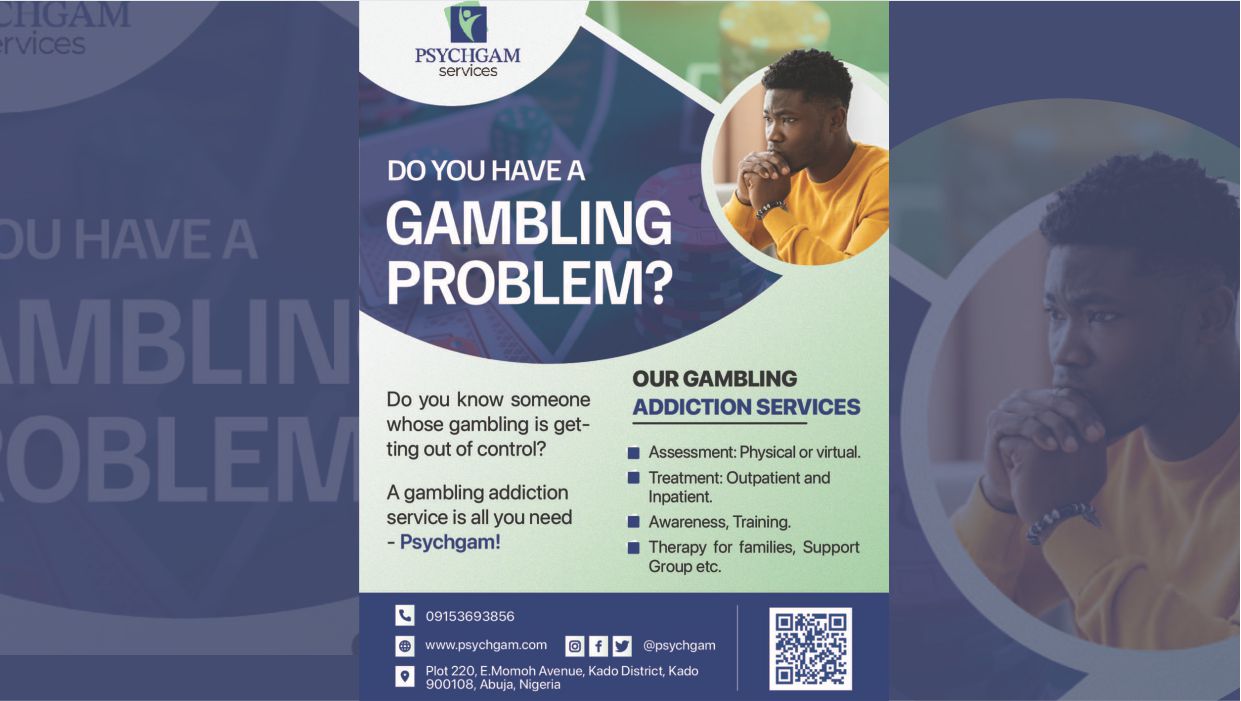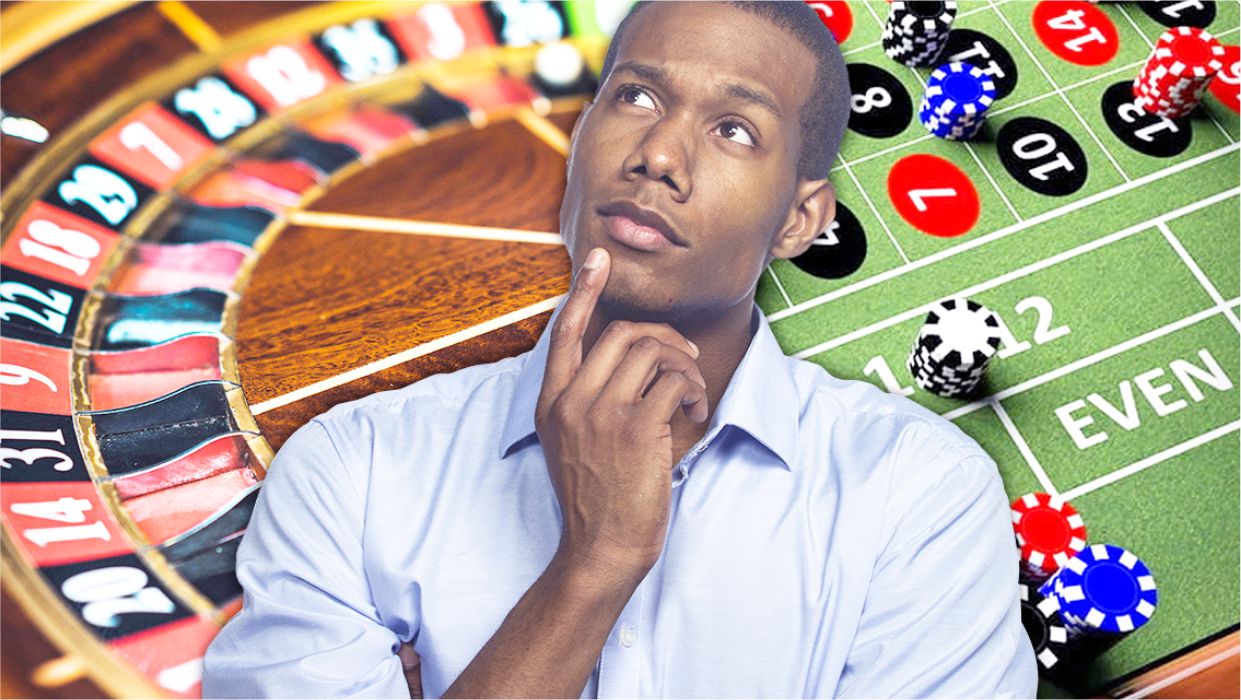WHAT IS GAMBLING ADDICTION?
To gamble is to play games of chance for money.
Gambling is the act of wagering or betting money or something of value on an event with an uncertain outcome with the intent to win more money or things of value than was wagered.
Gambling addiction which can also be called compulsive gambling or gambling disorder is an uncontrollable urge to keep gambling despite the toll it takes on your life.

It’s estimated that over 60 million adults in Nigeria are involved in sports betting.
THERE ARE 3 COMMON TYPES OF GAMBLERS;
1. THE PROFESSIONAL GAMBLER: these are the rarest, they depend on games of skills rather than luck to make money, and they have full control over the time money and energy they spend on gambling.
2. THE SOCIAL GAMBLER: They consider gambling to be a valid form of recreational activity and maintain full control over the time, money and energy that they spend on gambling, they consider the cost of gambling to be payment for entertainment purposes.
3. THE PROBLEM GAMBLERS: These are the last but not the least category/type of gamblers, they often believe themselves to be or pretend to be a social or professional gambler but they are the ones with a gambling addiction.

WHAT CAUSES GAMBLING ADDICTION
Many things contribute to gambling addiction, including, biological, genetic and environmental factors.
SIGNS AND SYMPTOMS OF GAMBLING ADDICTION
RISK FACTORS TO CONSIDER
1. MENTAL HEALTH ISSUES: people who gamble often have substance misuse, problems, personality disorders, depression, or anxiety, and compulsive. Gambling may also be associated with bipolar disorder, obsessive-compulsive disorder (OCD), or attention deficit disorder (ADHD).
2. AGE: compulsive gambling is more common in younger and middle-aged people when they gamble during the age of childhood or teenager. It increases the risk of developing compulsive gambling as this is more common in older adults.
3. SEX: compulsive gambling is more common in men than women who gumball typically start later in life, and may become addicted more quickly, but gambling Patterns among men and women have become increasingly similar.
4. FAMILY OR FRIENDS INFLUENCE: if your family members or friends have a gambling problem, the chances are greater that you will too majority of people get peer pressured into gambling.
COMPLICATIONS
TREATMENT
There are different ways to combat gambling addiction. Getting effective treatment requires getting professional help.
At Psych gam services, we offer an in-depth assessment of each case and then formulate and carry out specific treatments tailored to each individual. Reach out to us to book a session for yourself or a loved one.
REFERENCES
Gamblin disorder in Diagnostic and statistical manual of mental disorders, fifth edition, text revision DSM-5-TR
https://www.healthline.com/health/addiction/gambling
https://www.mayoclinic.org/diseases-conditions/compulsive-gambling/symptoms-causes/syc-20355178
Chat with us on WhatsApp


